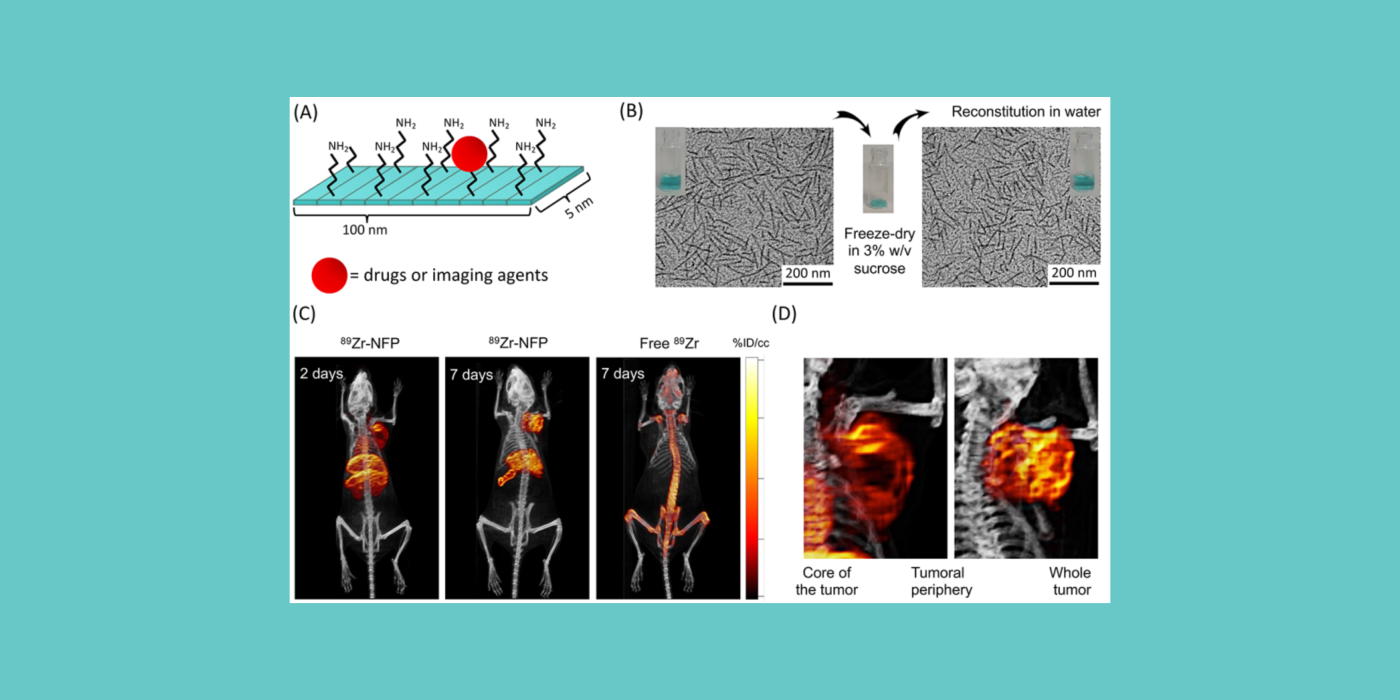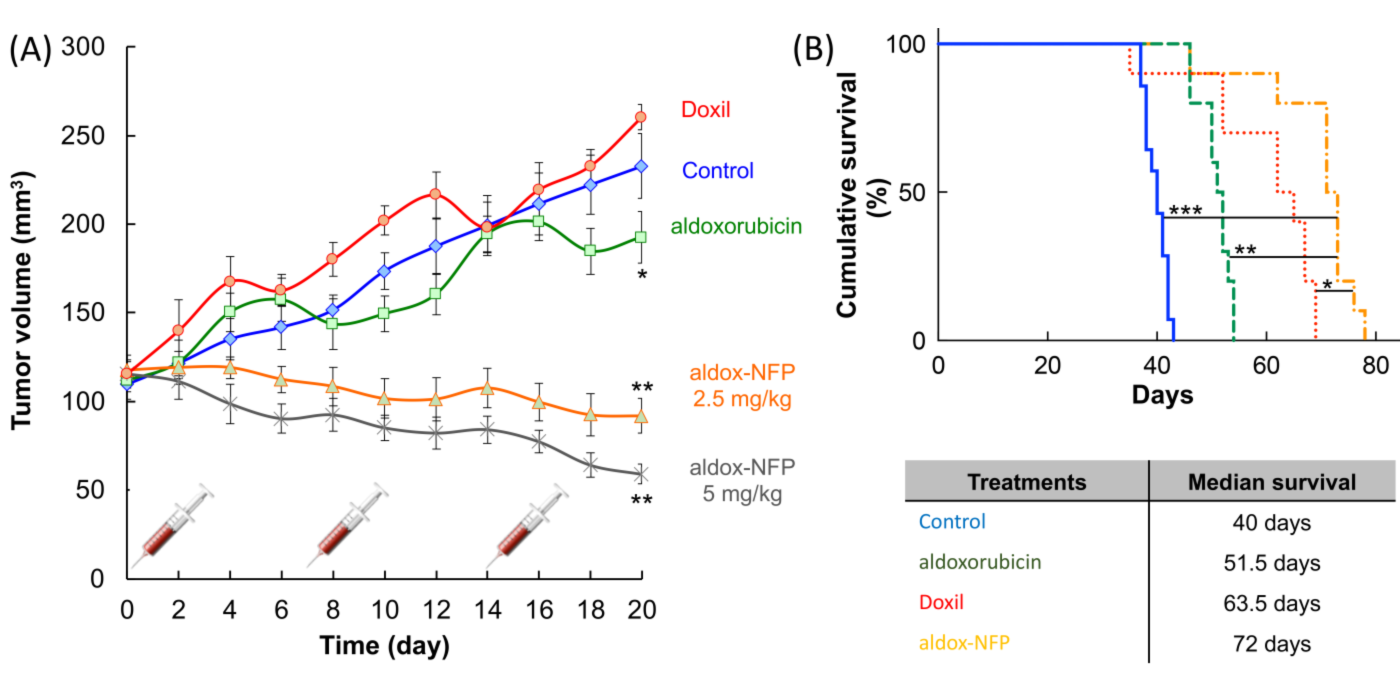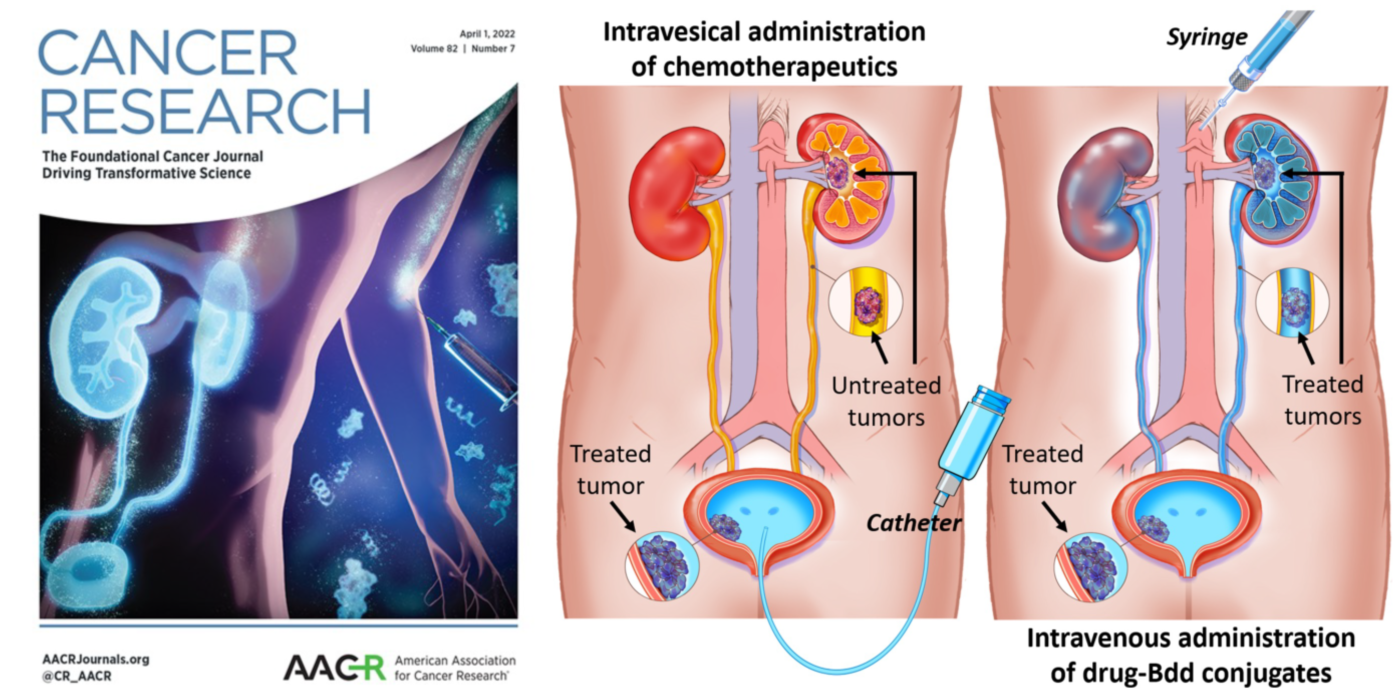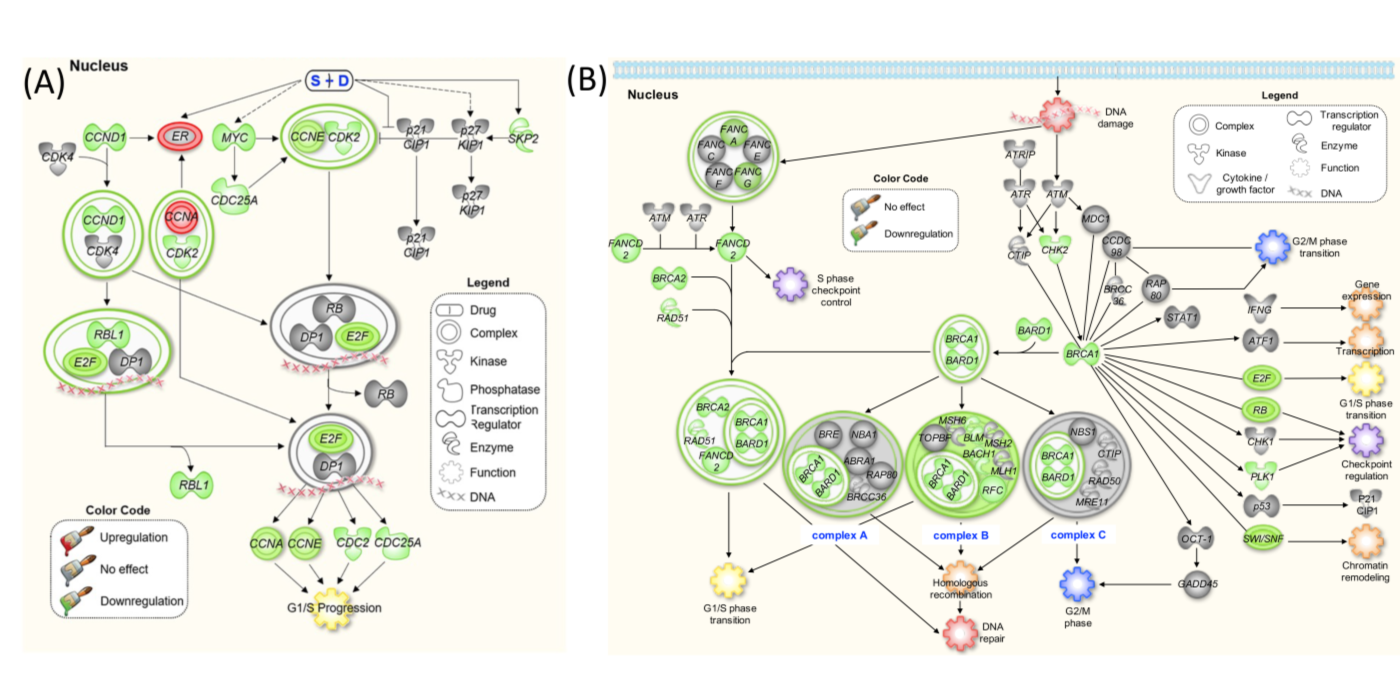
The superior efficacy of the nanofiber platform
(A-B) Diagram/transmission electron microscopic image of nanofiber platform (NFP). (C-D) Positron emission tomography/computed tomography (PET/CT) image of animal treated with 89Zr-labeled NFP. (R) Animal treated with free 89Zr as control.

Nanofiber platforms precisely target even metastasized breast cancer.
A doxorubicin-loaded nanofiber platform (Aldox-NFP) offers (A) superior efficacy when treating animals bearing primary MDA-MB 468 breast tumors and (B) a survival benefit when treating animals bearing metastatic MDA-MB-231 breast tumor lesions in lungs.

Convection-enhanced delivery of nanofiber platforms boosts brain cancer survival.
(A-B) Combined nanofiber platform (NFP)/convection enhanced delivery for treating diffuse intrinsic pontine glioma (DIPG). (C) 89Zr-NFP showed a longer post-delivery retention than control. (D) DM1-loaded NFP improved DIPG animal survival.

Nanofiber platforms in the news
The Law lab's work recently made the cover of Cancer Research, the journal of the American Association for Cancer Research, the world's oldest and largest cancer association.

Synergistic drug-amplified nanoparticle delivery
Diagram showing (A) how genes associated with the estrogen-mediated S-phase entry pathway were significantly suppressed by the drug combo of salinomycin (S) and dasatinib (D). (B) The drugs also synergistically inhibited the BRCA1 pathway.






